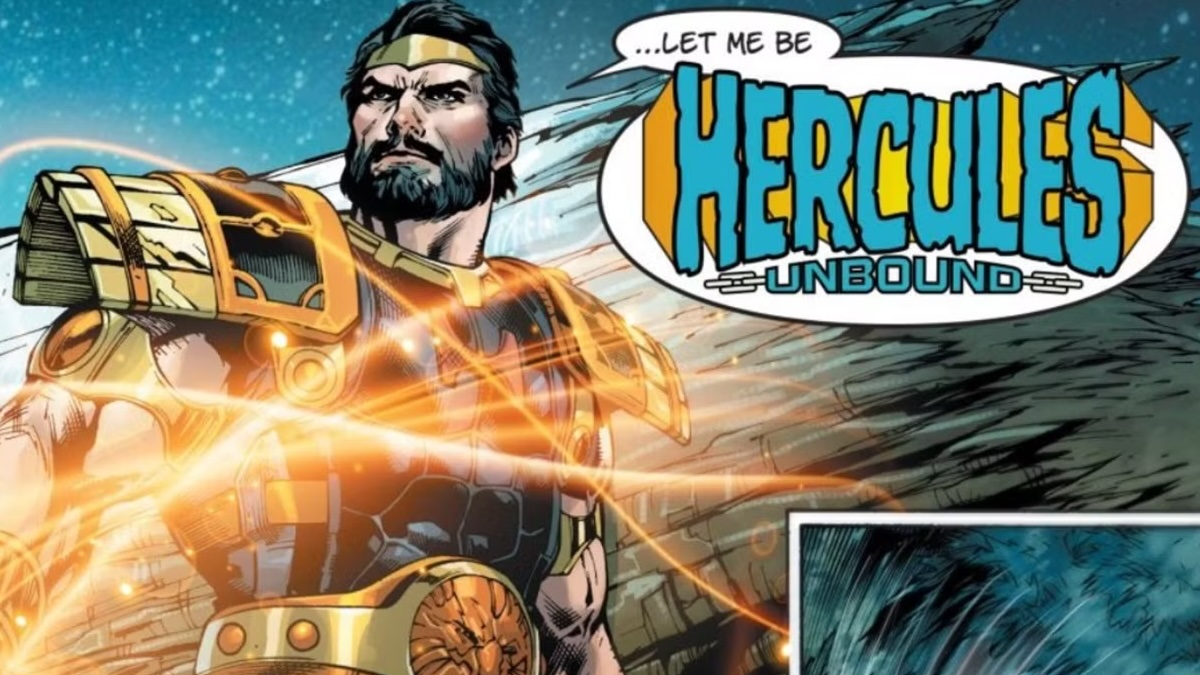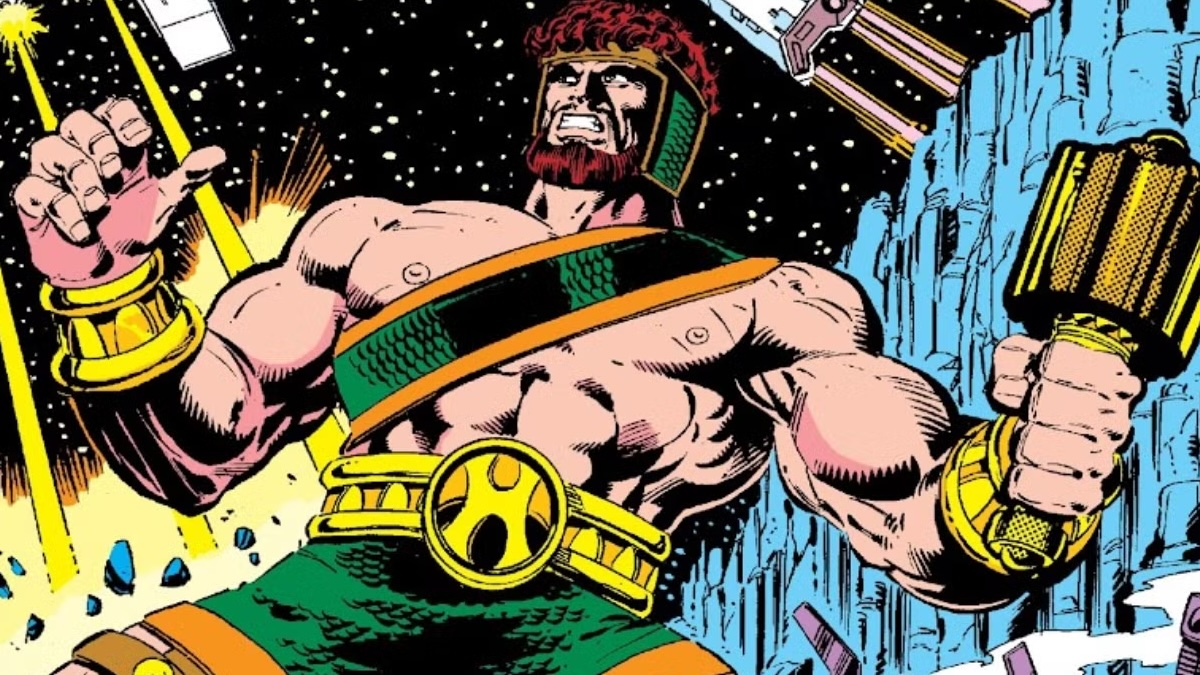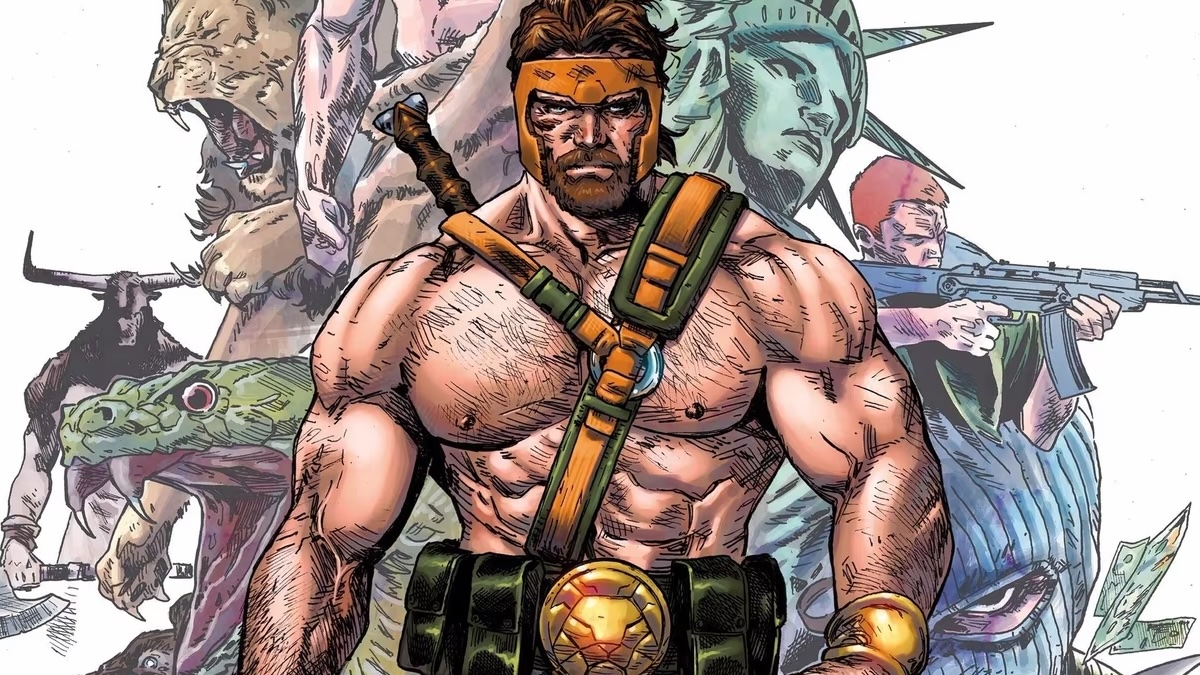
In ancient Greece, the legendary figure known as Heracles (or Hercules) is widely recognized as the epitome of mythological heroes in the Western world. His unparalleled displays of physical power, strategic intellect, and confrontations with terrifying beasts have led many to view him as the precursor for contemporary superheroes. Over the course of millennia, his heroic deeds continue to captivate us. Notably, both Marvel and DC Comics endeavored to update this timeless character for modern times. However, it was only Marvel who successfully crafted a well-rounded and consistent character that seamlessly blends elements from the superhero genre with those found in Greek mythology. In contrast, it seems that DC struggled to make a decisive choice regarding Hercules’ portrayal, oscillating between depicting him as a cruel antagonist or a hero in search of redemption through multiple reboots and retcons.
In their respective comic book universes, Hercules from DC Comics and Marvel Comics share a similar origin rooted in ancient mythology. Both characters were born to mortal mothers and the god of thunder, Zeus, making them demigods. Their shared lineage, however, drew the ire of Hera, Zeus’ wife, due to his infidelity. As punishment for this transgression, both Hercules were subjected to Hera’s wrath and were forced to complete Twelve Labors to demonstrate their worthiness of godhood in the eyes of Zeus. Both characters possess immense strength and are depicted as being arrogant and prideful due to their immortal nature, allowing them to exist in the modern era. However, despite these similarities, the Hercules from DC Comics and Marvel Comics are distinct individuals on their respective comic book pages.
DC’s Hercules: The Villain-ish

In the DC Universe, Hercules appears not as a hero but as an enemy of Wonder Woman. Just like in mythology, one of Hercules’ Twelve Labors involves acquiring the girdle of the queen of the Amazons, who is none other than Wonder Woman’s mother, Hippolyta. However, unlike in the myth where Hippolyta willingly gives the girdle to Hercules due to their strong friendship, the DC Universe portrays a different story. Here, Hercules leads an army to plunder, attack, kill, and enslave the Amazons. He takes pleasure in the violence, which is so horrific that it prompted the Amazons to seclude themselves from the world of man for millennia.
A significant issue with DC’s Hercules character is that he lacks consistency and has an unclear, fragmented character development. His motivations and actions seem to be dictated by the specific writer handling his narrative. Some DC writers portray him as a more villainous figure, harboring a grudge against the Amazons from past events, while others depict him as a penitent individual seeking redemption and transformation into a hero. This inconsistency can make it challenging for readers to connect with or fully understand his character.
The duality in character development can effectively resonate with audiences for characters like Magneto, as he undergoes a believable transformation and is placed in scenarios where his complex responses are relatable. In contrast, the duality of DC’s Hercules often feels forced and erratic, lacking any credibility or development in his character. Unlike Magneto, there’s no logical progression or justification for Hercules’ abrupt changes in mindset, making it difficult to accept him as a hero given his heinous actions. Furthermore, the inconsistent storytelling surrounding DC’s Hercules makes it challenging to follow a coherent narrative that demonstrates how he evolved from being reckless and cruel to remorseful and self-aware.
For instance, writers have attempted to explain away Hercules’ villainous behavior by suggesting brainwashing; however, they later portrayed him as equally evil in contemporary settings, creating confusion about his character development. This inconsistency, along with the irregular appearances of DC’s Hercules in comics, makes it challenging for readers to become emotionally invested in his story.
Marvel’s Hercules: The Hero

Marvel’s Hercules, much like DC’s Hercules, initially exhibits traits of pride and anger. However, what sets Marvel’s version apart is that he is fundamentally a noble character with a compelling development arc. In the beginning, Marvel’s Hercules appears as a boastful and aggressive immortal demigod who engages in battles merely for the excitement. Over time, through his interactions and experiences, this character transforms significantly. He establishes deep connections with the Avengers and other heroes within the Marvel Universe, viewing them not just as allies but as fellow warriors. Despite retaining his impulsive and daring nature, Hercules gradually matures, prioritizing helping others over seeking challengers to prove his strength. He eventually leads the superhero team, the God Squad, and later takes on a mentor role at the Avengers Academy, guiding the future generation of heroes.
Marvel’s Hercules narrative explores the essence of true heroism. Initially, Hercules embodied a typical macho persona, indifferent about whom he battled, as long as it boosted his reputation. However, interactions with the Avengers and other contemporaries progressively altered this perspective. Specifically, encounters with heroes of the present era, who fought not for acclaim or amusement but to safeguard the defenseless, made a significant impact on him. Previously, Hercules was a solitary figure, regarding those around him as inferior. Yet, he developed sincere friendships with heroes like Amadeus Cho, whose influence guided his transformation towards humility and empathy. Although some of Hercules’ original shortcomings persist, he now consciously strives to overcome them.
The Hercules of the Modern Age

The characters of Hercules in both DC and Marvel comics are modern adaptations of the ancient Greek hero, but the ways they’ve reimagined him differ greatly. DC seems to be struggling with how to handle their version of Hercules, while Marvel’s portrayal feels like it grew naturally from character development. This is surprising because Wonder Woman, a key character in the DC franchise, has ties to Hercules, and you might expect DC to put more thought into creating a compelling Hercules for their team of superheroes. On the other hand, Marvel seized the chance to bring one of literature’s greatest heroes to life. By focusing on his strengths and weaknesses, they created a Hercules who adds depth to the original hero’s character and lives up to the Hercules legend, making it clear that their version is the most successful.
Read More
- Survivor’s Colby Donaldson Admits He Almost Backed Out of Season 50
- Best Controller Settings for ARC Raiders
- Gold Rate Forecast
- Where Winds Meet: How To Defeat Shadow Puppeteer (Boss Guide)
- The Sci-Fi Thriller That Stephen King Called ‘Painful To Watch’ Just Joined Paramount+
- How to Build a Waterfall in Enshrouded
- Hazbin Hotel season 3 release date speculation and latest news
- 40 Inspiring Optimus Prime Quotes
- Guide: Marathon Server Slam Gets Underway Today – Here’s Everything You Need to Know
- Monster Hunter Stories 3’s character creator is officially revealed — and it features a cosmetic that’s normally paywalled in the mainline games
2025-07-22 00:18